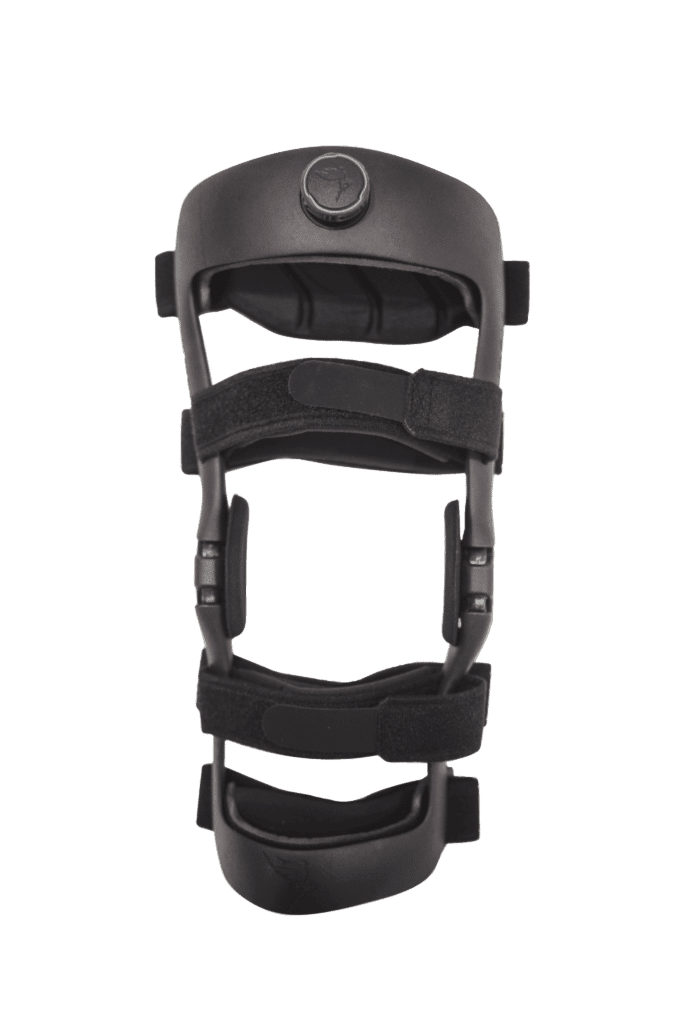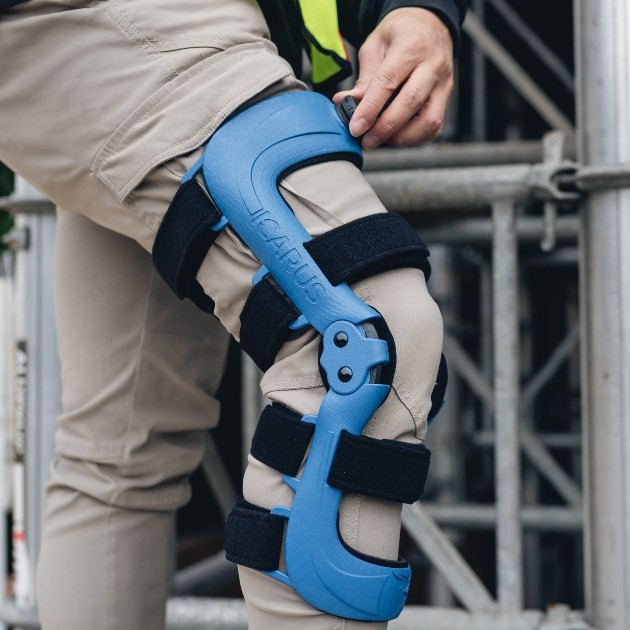The knee is one of the largest and most used joints in the body, making it more susceptible to injuries that can cause pain, swelling, and damage to the knee. Although injuries can be unpredictable and unavoidable at times, it is good to understand the causes of these injuries, options to recover from them, and what you can do to prevent them from reoccurring.
In this article, we’ll explore the most common types of knee injuries and what lifestyle changes you can make to help you stay healthy after a knee injury or avoid one as much as possible.
Common Types of Knee Injury
Knee injuries affect the knee’s central components, including the bone, cartilage, ligaments, tendons, or bursae (the sacs filled with fluid surrounding the knee joint). In most cases, knee injuries need medical attention and sometimes even require surgery to heal fully.
Some of the more common types of knee injuries are below:
I. Knee Fractures
Knee fractures occur when any of the bones (notably the kneecap or “patella”) suffers a fracture. The kneecap acts as a shield and protects the knee joint’s more delicate ligaments and tendons. Fractures are caused by high-impact forces such as falling or taking a hit while playing a sport. However, conditions such as osteoporosis can make people more susceptible to fractures. Fractures are both common and severe and will require medical attention because the bone needs to be kept in place to heal properly.
II. Ligament Sprains & Tears
Ligaments are elastic tissues that connect bones. The most common injury occurs to the anterior cruciate ligament (ACL), which sprains or tears. Typically, it happens from sudden turns or movements during sports activities but can also occur from incorrectly landing after jumping or accidents. While a sprain will heal with rest, tears will require surgery.
However, the ACL isn’t the only ligament susceptible to injury. The knee joint also contains the posterior cruciate ligament (PCL), the lateral collateral ligament (LCL), and the medial collateral ligament (MCL), which play important functions in joint stability and proper articulation. While a sprain in these areas will heal with rest, tears or ruptures may require surgery.
III. Tendon Tears
The soft tissues that attach muscles to bones are called tendons. This common knee injury in middle-aged to older individuals occurs when engaging in strenuous activities such as running or jumping and then landing in an awkward position. The tendon cannot support the overextension, resulting in a tear. However, falls can also cause the tendon to tear.
IV. Meniscus Tear
Another common injury occurs when the cartilage responsible for absorbing shock breaks or tears. The piece of cartilage between the shinbone and thigh bone is called the meniscus. Athletes are more likely to injure the meniscus due to sudden and rapid changes in movement, but age also causes them to wear down over time. In this case, you might feel or even hear a “pop” when cartilage tears.
V. Dislocations
Lorem ipsum dolor sit amet, consectetur adipiscing elit. Ut elit tellus, luctus nec ullamcorper mattis, pulvinar dapibus leo.
Staying Healthy After a Knee Injury
After you’ve recovered from a knee injury, it’s essential to make lifestyle changes to keep them from happening again. Here are some steps to take to stay healthy after a knee injury.
I. Prioritize Nutrition
Your diet is vital in maintaining healthy and strong muscles, bones, and ligaments. Eating foods high in calcium promotes bone growth, protein strengthens muscles, and vitamin D has been proven to preserve cartilage. If you’re an athlete, you must ensure your knees can handle the stress from running and jumping around.
II. Wear Protective Gear
Knee gear is a must if you’ve previously suffered a knee injury. For example, knee sleeves provide protection and compression, which prevents damage and injuries when running or playing sports like basketball. Knee braces also support you if you’ve suffered a meniscus or ligament injury. And if you’re engaging in activities that might cause a fall, such as biking or skating, knee pads can help absorb impact forces that lead to fractures.
III. Use Proper Footwear
Shoes also can affect your knee health. For example, wearing high heels puts undue stress and tension on your knees when walking around. The best choice is to wear shoes that fit your feet and arches and provide ample support. A good pair of running or athletic shoes keep your knees adequately aligned while allowing you a full range of motion. Wearing the wrong shoes can affect how you walk. In turn, it can cause your gait to put more pressure on your knees, leading to knee injury and pain.
IV. Avoid Overexerting Yourself
When exercising or training, it’s crucial to be aware of your strengths and limits– especially if you’ve previously suffered a knee injury. You increase the risk of muscle, ligament, and tendon injuries when overexerting. Even if you have perfect control and movements, you can still injure yourself by overtraining.
Takeaway
Knee injuries can’t always be avoided. However, if you’re aware of what causes them and the tips it takes to stay healthy after a knee injury, then you can minimize risks and recover faster when they occur. Remember, if you’re suffering from severe pain or feel your knee injury is serious, seek medical attention immediately. And once you’ve recovered, consult with your physician for more tips on what to do to risk hurting your knee again.
If you require a knee brace for recovery, consider the Ascender knee brace by Icarus Medical. The Ascender is a new class of knee brace that protects the joint by unloading up to 40 lbs of weight during activity, and users have reported an average 61% pain relief. The brace is custom-fit to you, covered by most insurance and made 100% in the USA. Contact our sales team for answers to your questions and begin the process of recovery.

